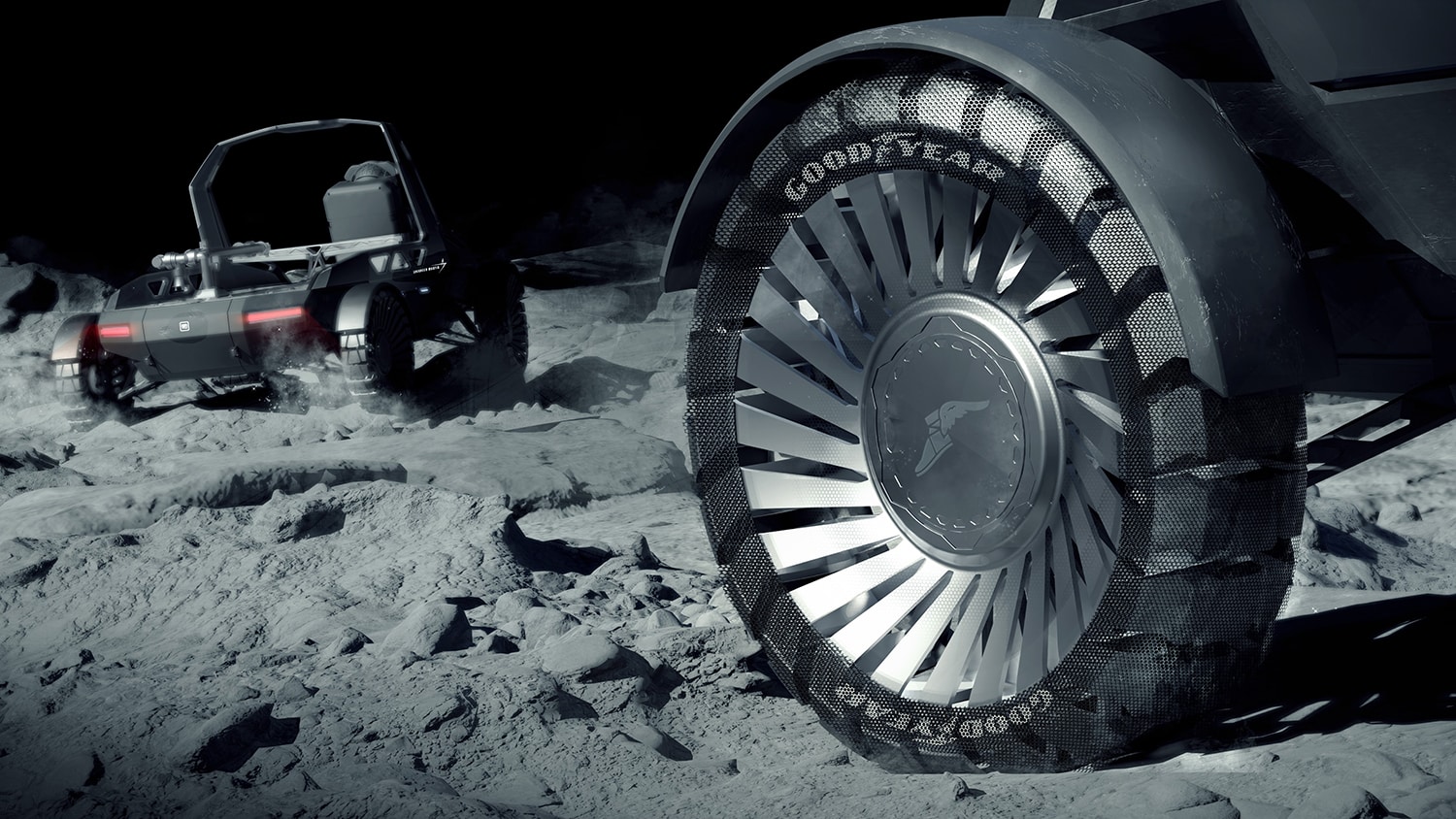
General Motors and Lockheed Martin are working together to design the next generation of lunar rovers, capable of transporting astronauts across farther distances on the lunar surface, for NASA’s Artemis program. Recently, the Goodyear Tire & Rubber Company announced that it is joining the team to help develop expeditionary vehicles, specifically airless tires. The team intends to be the first to establish extended-use commercial vehicle operations on the Moon.
Goodyear supplied essential products for NASA’s Apollo program, including the Apollo 11 mission, which landed on the Moon 53 years ago. The Apollo lunar rovers were purposely built for just a few days of use on excursions within five miles of their landing sites.
Future missions will need to traverse rugged terrain over much longer distances while operating in greater temperature extremes. New tire capabilities will need to be developed for years of durability and even survive the night that sees temperatures of below -250 degrees Fahrenheit and daytime temps of over 250 degrees Fahrenheit.
Goodyear is leveraging its advanced airless tire technology used on Earth with micro-mobility, autonomous shuttles, and passenger vehicles to advance lunar mobility and withstand these challenging conditions on the Moon. The companies are already applying existing expertise to the project, including testing concepts in lunar soil test beds.
Another teammate, Canadian space technology company MDA, recently announced its commercial robotic arm technology would be used on human-rated lunar mobility vehicles. This robotic arm will provide valuable contributions as support for astronauts as well as enable greater functionality of the rover on fully autonomous missions.
“NASA’s Artemis program to live and work on the Moon has a clear need for lunar surface transportation that we intend to meet with vehicles driven by astronauts or operated autonomously without crew,” said Kirk Shireman, vice president of Lunar Exploration Campaigns at Lockheed Martin. “We’re developing this new generation of lunar mobility vehicle to be available to NASA and for commercial companies and even other space agencies to support science and human exploration. This approach exemplifies NASA’s desire for the industry to take the lead with commercial efforts that enable the agency to be one of many customers.”
The companies expect to have their first vehicle on the surface of the Moon in time to support NASA’s first landed mission that will have the first woman and first person of color walk on the Moon, currently planned for 2025.
Goodyear to provide airless tires for Lockheed Martin’s lunar rovers
Source: Tambay News

0 Comments